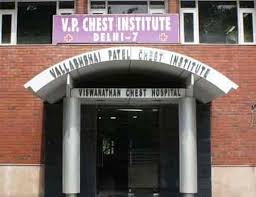
Vallabhbhai Patel Chest Institute's Landmark Achievement on World No Tobacco Day
On World No Tobacco Day, the Vallabhbhai Patel Chest Institute (VPCI) proudly announces a significant milestone in the battle against tobacco addiction. The institute's tobacco Quitline has documented a remarkable 144,938 individuals who have successfully quit smoking out of a total of 477,585 registered calls, with an astounding 8.2 million calls recorded on the IVR platform. What's particularly striking is that nearly half of these registered calls, totaling 46.96%, originate from young adults aged between 18 to 24 years, indicating a growing determination among India's youth to combat the scourge of tobacco addiction.
Dr. Raj Kumar, Director of the Vallabhbhai Patel Chest Institute, elaborates on the institute's pivotal role in tobacco control: "Since its establishment, our Tobacco Cessation Clinic at VPCI has been spearheading efforts to combat tobacco addiction, offering crucial support to individuals grappling with this habit. Our comprehensive approach, combining counselling and pharmacotherapy, has significantly enhanced quit rates and contributed to improved public health outcomes. Safeguarding the youth from the perils of tobacco remains our top priority, as our efforts today will shape a healthier, tobacco-free future for the next generation."
An intriguing aspect of the data reveals that close to half, or 46.96%, of the registered calls to the National Tobacco Quitline Service (NTQLS) come from the 18 to 24 age bracket, with a majority of callers possessing a 12th-grade education. Furthermore, over 43% of these individuals are self-employed, 75.85% have no family history of tobacco use, and a staggering 68.63% are users of smokeless tobacco. Uttar Pradesh leads the tally with 150,925 calls (31.6%) and contributes to 29.68% of quitters. Additionally, the majority of calls, accounting for 72.96%, are from individuals with 1-10 years of tobacco use, and an overwhelming 77.74% have no history of alcohol consumption.
The Vallabhbhai Patel Chest Institute has emerged as a beacon of hope in the nationwide fight against tobacco addiction. Notably, it was the site of India's first Tobacco Cessation Clinic, established in November 2001. In 2016, the Ministry of Health and Family Welfare launched the National Tobacco Quitline Service (NTQLS), a prestigious project operating toll-free from 8 AM to 8 PM, offering counselling in 15 languages. The service has been instrumental in guiding callers through the quitting process, providing personalized advice, and addressing concerns, with satellite centres now operational at Tata Memorial Hospital in Mumbai, NIMHANS in Bengaluru, and Dr. Bhubaneswar Borooah Cancer Institute in Guwahati.
Dr. Raj Kumar emphasizes the vital role played by the NTQLS in providing free, confidential counselling and guidance to tobacco users nationwide, empowering them to take control of their health. He stresses that quitting tobacco requires more than just willpower, as the psychological and behavioural aspects of addiction must also be addressed. Over the past 23 years, the Tobacco Cessation Clinic at VPCI has conducted 376 public awareness programs, anti-tobacco campaigns, and seminars, reaching out to over 1.3 million individuals. These initiatives have trained 57,243 doctors, educated 44,652 students, and empowered 61,129 social workers, creating a ripple effect of awareness and education across communities.
As World No Tobacco Day approaches, the Vallabhbhai Patel Chest Institute and the Society for Tobacco Control are observing the occasion under the theme "Protecting Children from Tobacco Industry Interference," underscoring the importance of safeguarding youth from the harmful effects of tobacco. Dr. Raj Kumar's illustrious career, punctuated by accolades such as the Lifetime Achievement Award (2024) and the WHO-World No Tobacco Day Award (2019), reflects his unwavering commitment to tobacco control and public health. His extensive contributions to over 545 research papers, books, and publications have solidified his standing as a prominent figure in the global medical fraternity.